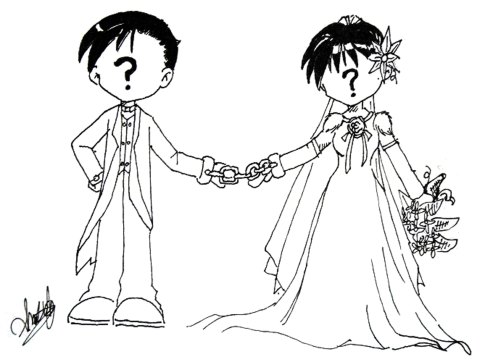Chip (the Colonel) Martin is not the central character of John Green’s “Looking for Alaska”, however, his complex nature allows for in-depth character analysis.
The Colonel grew up in a family that was on the edge of falling to pieces, the main conflict being his father, who was an unfaithful, irresponsible, and most notably, abusive man. After leaving the family behind, his father did not think twice to call him in order to explain the situation to him or to simply say goodbye. Chip endlessly waited for a phone call that was never going to arrive. In the aftermath following that day, the Colonel’s mother took full custody of him and raised him in a very small trailer park home. All the two had left was each other and the trailer park home in which they called home.
As a result of the circumstances in which the Colonel grew up in, he has been able to develop himself into a hardworking, and remarkably loyal individual. He has essentially became an individual that would heavily contrast his father’s character in which he despised.
Difficult as it was for his mother to send him to school, as it would separate the loving family of two, the Colonel’s mother gave him the opportunity to spread his wings at Culver Creek. After all, he had worked hard to earn his scholarship. On the other hand, the Colonel never dismissed the idea that it was difficult for his mother to send him to school, and in result, he made up his mind to not disappoint his mother. During the difficult time in which the Colonel and Miles were both struggling to move on from Alaska’s death, studying did not lose any importance to the Colonel. Unlike the Colonel, Miles was mentally able to settle with a 3.0 GPA, but for him, nothing less than a 4.0 GPA would suffice. The Colonel had two ambitions and to achieve both ambitions, studying hard and doing well in school would be the only ways to achieve those ambitions. Despite being a complete goof at times with his planning and executing of pranks, smoking and drinking habits, the Colonel would never go to the extent of committing any expellable offenses, as in the end, he had a great desire to attend an amazing college. Following the graduation from college, he had a vision of settling down with a high-paying job that would allow him to achieve his second ambition, expressing his gratitude to his mother in the form of a luxurious home. The parents of the Weekday Warriors he once despised, but internally became envious of, would eventually become his mother’s neighbours. In his younger years, the Colonel was only a bystander who was unable to stop the foul treatment that his father was giving his mother. In order to compensate for his inaction in the past, the Colonel wants to become the man that could support his mother; to have the ability to provide her with a better life; the opposite of his irresponsible father.
The Colonel’s tragic past not only inspired him to become hard-working, but it also caused him to become an individual who is highly concerned with the entire idea of loyalty. There were many instances throughout the novel in which the Colonel portrayed his loyal nature. When Miles first arrived to Culver Creek, he was informed by the Colonel of the one rule to never forget while on campus; to never rat. Although it hadn’t been long since the Colonel met Miles, he nonetheless gave Miles the same treatment as he would to any one of his close friends. The Colonel was an man of action, he did not hesitate at all to develop a counter-strategy to seek justice from the Weekday Warriors for Miles. Additionally, there was another instance in which the Colonel, along with Alaska took the blame for being accused as the smokers at the Jury, which allowed Miles and Takumi to get off the hook without any punishment. Miles could not come to understand the reason behind why the Colonel took the fall for him, as out of the entire bunch, the Colonel had the most to lose. If anything, the Colonel had both his ambitions at stake, but his loyal nature came above his ambitions at that moment, portraying the Colonel’s ultimate loyalty towards his friends. The Colonel’s sense of loyalty once again surfaced when Alaska rushed into Room 43 and begged the Colonel and Miles to help her to escape. It can be argued that in the moment, the Colonel internally hesitated for a quick second about her safety and well-being, but eventually let her go just for the sake of it and carried out his decoy mission in support of her. Alaska’s escape turned out for the worse, and the Colonel couldn’t handle all the guilt that built inside of himself. Despite of this, he still did not rat when the Eagle (Mr. Starnes) asked the Colonel if he was responsible for setting off the firecrackers that night. Regardless of how severe the consequences of his actions were, the Colonel could never betray his own sense of loyalty.
On a separate note, the Colonel’s loyal nature was also evident in his relationship with Sara. It was without a doubt that the relationship between the two individuals was not a smooth ride, however, in spite of this, the two remained together. The Colonel once confessed, “’I guess I stay with her because she stays with me. And that’s not an easy thing to do. I’m a bad boyfriend. She’s a bad girlfriend. We deserve each other’” (38). It is arguable that the Colonel stays in the relationship to remain loyal to Sara in the same way that Sara stays with him, portraying her loyalty towards him in return. Moreover, after witnessing first-handedly the end of his parents’ relationship, the Colonel did not want to see a repeat of the same fate in his own life. To keep the relationship together, he had ignored all the issues that were going on between the two. Unfortunately, the relationship between the Colonel and Sara eventually came to an end. Despite of this, the Colonel remained loyal to Sara in the way that he did not mentally prepare to enter another relationship any time soon.
There was another example of the Colonel’s loyalty that I wanted to include into this character analysis, although it may seem irrelevant to some readers. The above examples that I have provided, exemplified the Colonel’s loyalty towards animate beings, however, the Colonel also demonstrates his loyalty to an inanimate object throughout the novel. It may be the result of the Colonel’s past, but he learns to appreciate the value of everything despite its physical appearance. At the beginning of the novel, the Colonel introduced Miles to his couch that, “was about 30 percent baby blue faux leather and 70 percent foam” (12), but still considered it to be “’a damn nice couch’” (12). It is arguable that the couch is a representation of the Colonel’s rough past, which is why he didn’t discriminate against it when he first saw it. Later on in the novel, the couch nearly became 100% foam and Alaska reminded him that he needed a new couch, but the Colonel completely ignored Alaska’s suggestion. He never once complained about the couch, but instead, appreciated it, which ultimately portrayed his loyalty towards the couch.
In the past, the Colonel was an individual that could only stand off to the side and watch as time passed by, but throughout the novel, he became someone completely different. According to Alaska, without Culver Creek in the Colonel’s life, he would only be intelligent and nothing else. His intelligence would only be contained within himself, and wouldn’t be put to any use. In the end, Culver Creek proved to be the place that allowed the Colonel to strive for his dreams, and the disgusting last impression that his father left him with, fueled his drive to surpass his father.
Note: Now that we’ve read to the end of “Looking for Alaska”, are there any questions that you have about the book? Well, you’re just in luck! John Green has a webpage that is entirely dedicated to answering questions about the book! Check out the Q&A below (but beware of spoilers!):

















